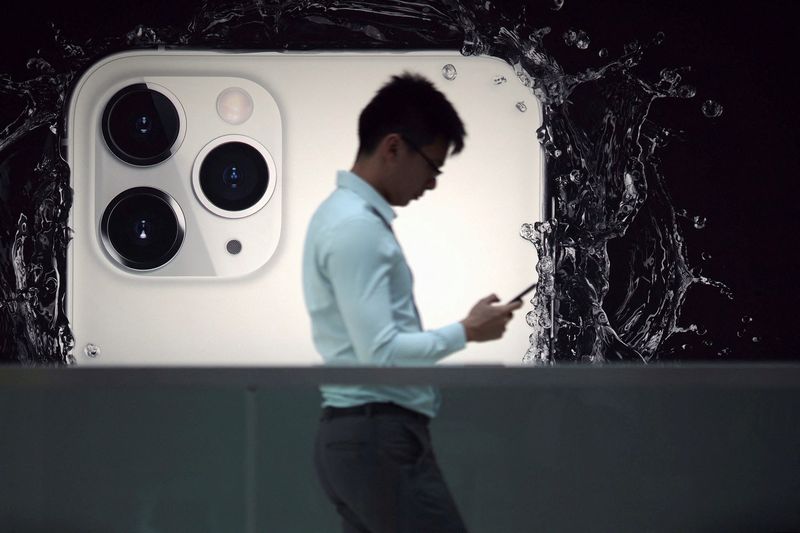Investing.com -- Apple's (NASDAQ:AAPL) iPhone saw its share of the worldwide smartphone market fall in November, weighed down in particular by increased competition in China, according to new data from research group Counterpoint.
Globally, the device's market share slipped by 50 basis points year-on-year and 300 basis points versus October to 20.8%.
Denting the iPhone's performance was weakness in China, where the high-end gadget's share of the all-important smartphone market fell to 21.3%, a drop of 320 basis points. China remains critical for Apple, accounting for about one-fifth of the tech giant's total revenue.
Apple has been facing several headwinds in the country, where local rivals Huawei and Xiaomi are rolling out products aimed at wooing customers away from the iPhone.
A growing number of Chinese agencies and state-backed businesses have also asked their workers not to bring iPhones or other foreign devices to work, Bloomberg News reported last month. The move comes as Beijing aims to reduce its reliance on overseas technology and promote domestic players during a time of heightened geopolitical tensions with the U.S.
Meanwhile, demand for all smartphones has remained soft, Counterpoint said. The firm has previously suggested that this weakness stems from lingering issues like component shortages and lengthening replacement cycles.
Yet signs of life are emerging in premium smartphones, or devices with a wholesale price equal to or above $600, as promotional seasons and financing options make it more affordable for many customers to shell out cash on flagship phones.
“There has been a shift in consumer buying patterns in the smartphone market. Considering the importance a smartphone holds, consumers are willing to spend more to get a high-quality device that they can use for a longer period," said Varun Mishra, Senior Analyst at Counterpoint in a statement.
Counterpoint noted that Apple continues to the "undisputed leader" in premium smartphones, although its share of the top-end section of the market dropped last year due mainly to the popularity of Huawei's Mate 60.
